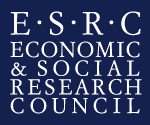The Care Pathways and Outcomes Study
This is a longitudinal study that has been following all the 374 children who were in care and under 5 years old on 31st March 2000 in Northern Ireland. This research aims to compare how these young people are getting on in their different types of placement. It also seeks to explore the levels of stability and placement breakdown that is occurring, and to identify the reasons for this.
Currently funded by the Economic and Social Research Council

-
Recent Posts
- Project Update 7: The need to know or/and search – is curiosity the right word?
- Regional variations in care planning
- Project Update 6: The well-being of care-experienced young adults in Northern Ireland
- Project Update 5: Youth’s experiences of (and future expectations of) parenthood
- Project Update 4: The 3 THINGS that are HELPING care-experienced young people COPE with difficult experiences in their lives
Categories
Tag cloud
- adoption
- belonging
- birth families
- birth parents
- care planning
- contact
- coping
- decision-making
- Deprivation
- digital technologies
- disabled young people
- disruption
- Early adversity
- education
- ethical considerations
- family
- foster care
- future
- health
- kinship care
- mental health
- parenting
- pets
- public engagement
- regional variations
- relationships
- research methods
- Residence Orders
- resilience
- searching
- social media
- social workers
- stability
- stress
- subjective well-being
- supports
- young parents
Recruitment video
Archives
Recent Comments
- Montserrat Fargas on About this blog
- Julia Rimmer on About this blog
- Montserrat Fargas on Project Update 4: The 3 THINGS that are HELPING care-experienced young people COPE with difficult experiences in their lives
- Brenda Horgan on Project Update 4: The 3 THINGS that are HELPING care-experienced young people COPE with difficult experiences in their lives
- Montserrat Fargas on Project Update 2: Placement disruptions are often not the end of the relationship
Meta
Author Archives: Montserrat Fargas
Project Update 7: The need to know or/and search – is curiosity the right word?
I recently came across a tweet from an adoptee regarding the concept of curiosity and adoption. Unfortunately, I can’t find it anymore, but it made me think. If I remember right, he/she argued that it is not curiosity that makes … Continue reading
Posted in Project Update
Tagged birth families, contact, family, relationships, social media
Leave a comment
Regional variations in care planning
A child in a particular area of Northern Ireland has a bigger chance to be placed for adoption (or to return to their birth parents, or to be fostered by relatives) than a child in another area with similar background … Continue reading
Posted in Articles, Phase 3 findings, Research
Tagged care planning, decision-making, regional variations
Leave a comment
Project Update 6: The well-being of care-experienced young adults in Northern Ireland
We have talked to 50 care-experienced young people and/or their parents or carers now. Last week, we presented a taster of what we have found so far in an international conference on family welfare in the beautiful city of Porto … Continue reading
Posted in Project Update, Research
Tagged health, mental health, subjective well-being
Leave a comment
Project Update 5: Youth’s experiences of (and future expectations of) parenthood
Care-experienced young people are more likely to become parents at an early stage of their lives than children who don’t have any experience of care. Some research has been carried out on care-leavers parenthood experiences, but the subject of adoptee’s … Continue reading
Project Update 4: The 3 THINGS that are HELPING care-experienced young people COPE with difficult experiences in their lives
Care-experienced young people often have to deal with a range of negative experiences and difficult/challenging emotions, which many of their peers might not have to deal with (e.g. abandonment, rejection, birth family histories of alcohol/drug abuse and domestic violence). In … Continue reading
Project Update 3: Birth family contact and searching for young people who entered care at a young age
Contact with the birth family is a very complex issue for children with experience of the care system, as well as for their parents/carers and for Social Services (making decisions about them). There is plenty of research focusing on this … Continue reading
Posted in Project Update, Research
Tagged contact, digital technologies, searching, social media
Leave a comment
Project Update 2: Placement disruptions are often not the end of the relationship
This post is a quick update of an aspect that appears to be coming through from our fieldwork so far. We are only at the early stages, and going back to the families that took part in the previous phase … Continue reading
Project Update 1: The long-term stability of placements for young people who enter care at a young age
Stability is defined as the strength to stand or endure. As such, it is crucial for young people’s wellbeing and their ability to maintain supportive and caring relationships. We have been tracking the placements of our study population (n=374) since … Continue reading
Posted in Project Update, Research
Tagged adoption, belonging, birth parents, disruption, foster care, kinship care, Residence Orders, stability
3 Comments
The mental health of young people in care: Barriers to help-seeking and how to make services more engaging
This post focuses on the mental health of looked after children and young people (LACYP) in Northern Ireland, as this is a very important aspect of our study. We have started fieldwork recently, and we’ve already encountered a few young … Continue reading
Kinship care: Messages from research and practice on the struggle and tribulations of older carers
After attending an ARK workshop held in Queen’s University Belfast on the 7th June entitled ‘Exploring inequalities in caring: grandparents’ experiences of kinship care from multiple perspectives’, I would like to reflect on the main messages I believe came out … Continue reading
